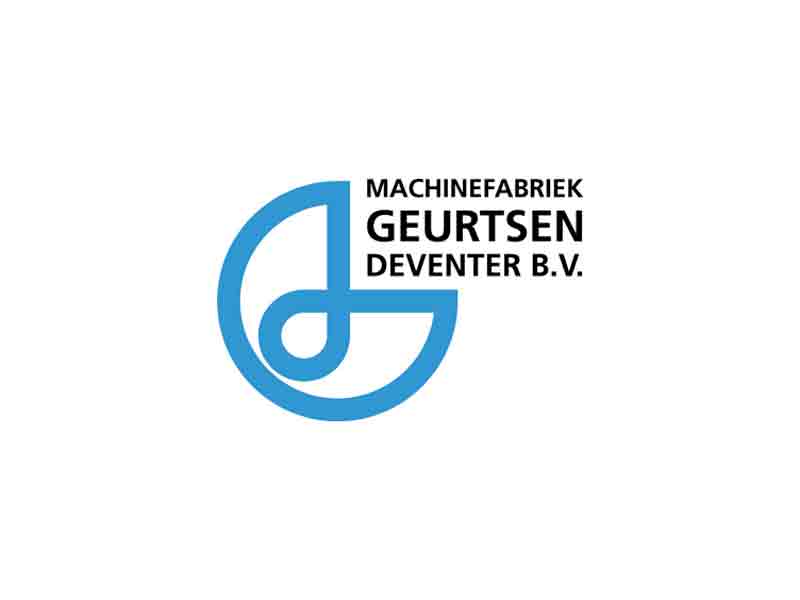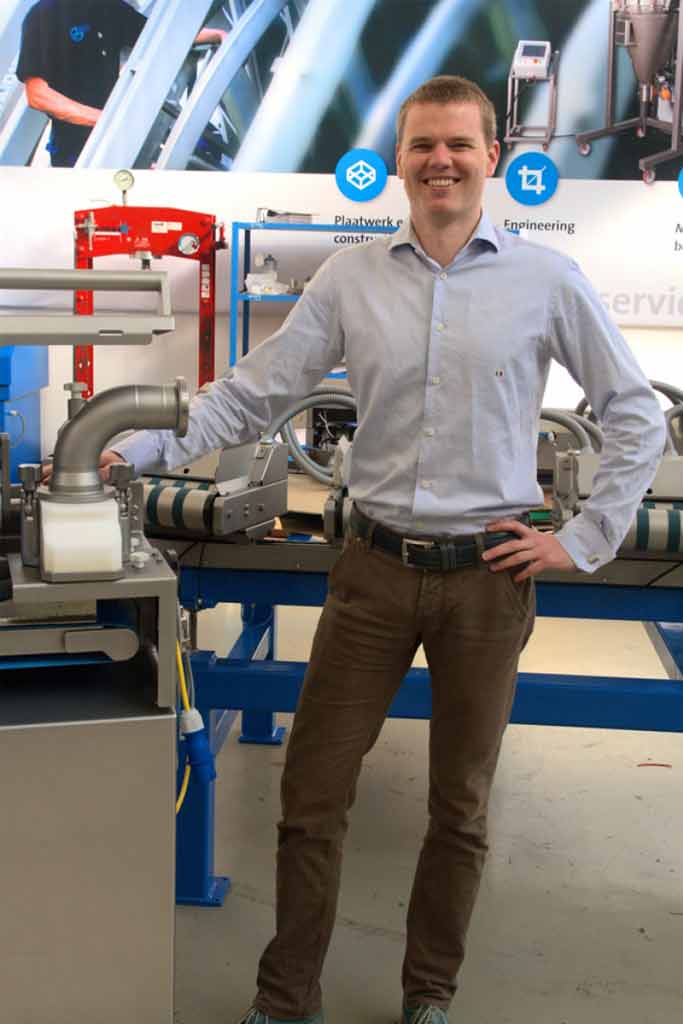
Machine Factory
Machinefabriek Geurtsen
Machine Factory
Machinefabriek Geurtsen was established in 1926 as a fire blacksmith annex construction workshop. The family business (third generation) has since then grown to become a group of companies with w total number of 350 employees. In addition to Machinefabriek Geurtsen in Deventer, the group consists of temporary employment agency Erick (130 employees), Machinefabriek Westerhof in Denekamp (70 employees) and machine factory BST in Hengelo (25 employees).
Machinefabriek Geurtsen has its own engineering department. At this department, the problems are translated to a design for the client, together with their wishes and demands. This design can then be manufactured in-house, resulting in a client specific machine of high quality. These machines can be maintained by the clients themselves, or they can outsource this to Geurtsen. In addition to building and maintaining machines, Machinefabriek Geurtsen is also a supplier of machine parts. The newly purchased loading robot that also produces outside of working hours helps ensure for faster delivery times. The clients come from various industries, such as chemical, pharmaceutical, food, offshore, paper, textile, packaging and metal industries.
Export ambition
In 2006, Geurtsen started developing food machines for creating various products, such as meatballs and hamburgers. These are industrial machines that are sold worldwide. Machinefabriek Geurtsen now sells 100 machines per year. The area of export is still growing on a yearly basis. For example, recently the first hamburger machines were sold in the United States, a market with a lot of potential.
Another growing market is the leather industry. The skins from slaughterhouses first need to be salted. The first machines for this were built around 25 years ago and are now in need of replacement. In addition, the skins are often processed manually which causes ergonomic problems (one skin can weigh up to 80 kilos). Geurtsen has developed a new machine that salts and stacks the skins entirely automatically. By now, the first machines have been delivered in Germany and Italy. Requests from other countries are being worked on at the moment.
Robots have become an essential part of the automatization of production processes. In collaboration with Hollander Techniek, Geurtsen has entered into a joint venture called Robotize. Their combined expertise and experience create a powerful player in the field of robotisation. Currently, the challenge is to find a solution to get 3 robots to lay stone strips at the same time. The challenges for the future are endless.

Export Countries
Belgium | Germany | Finland | France | Great Britain | Poland | Italy | Spain | Switzerland | Israel | Canada | Ghana | Ivory Coast | Japan | China | New Zealand | Russia | Turkey | United States
